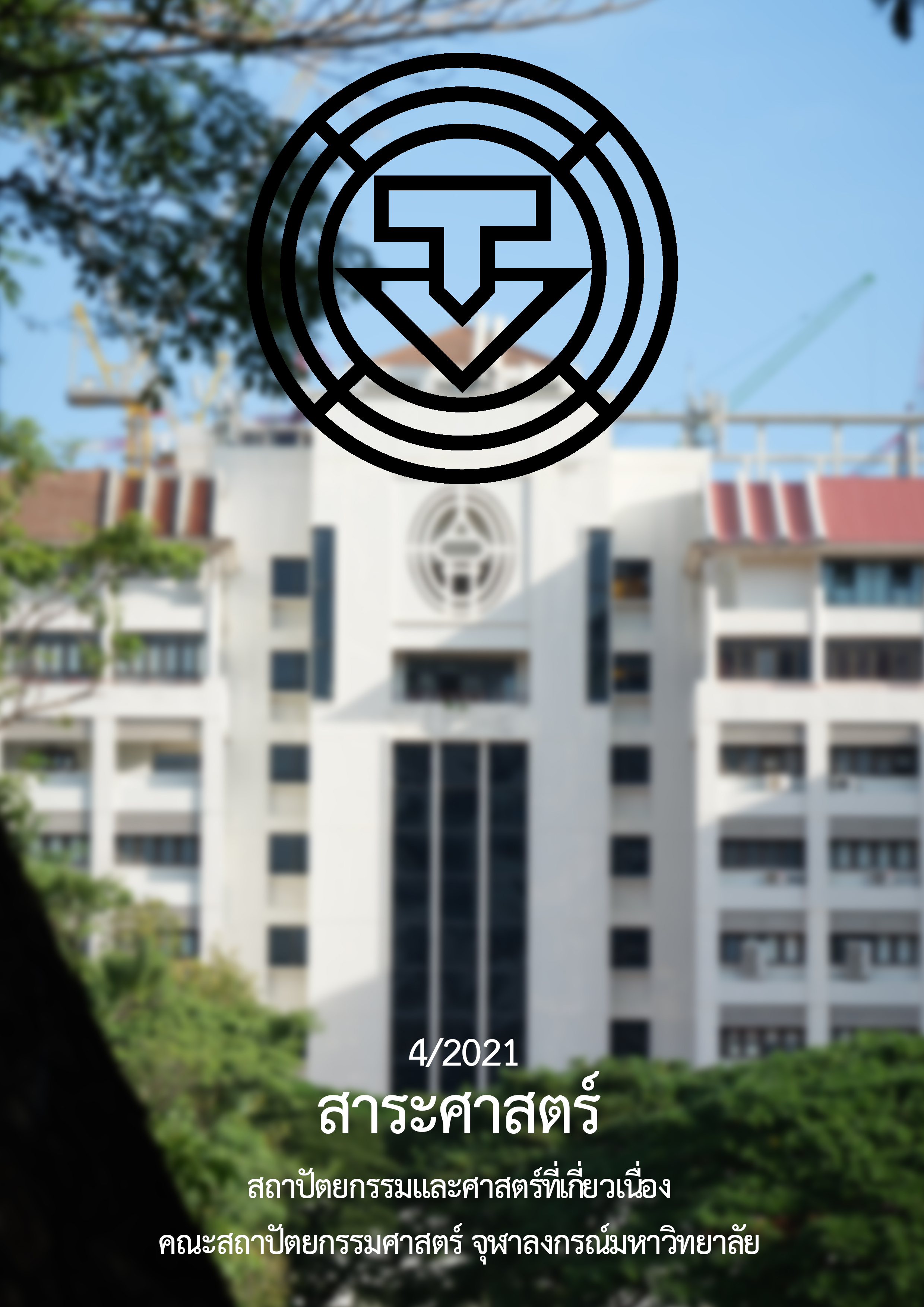Urban Planning Education in Thailand: Preferred Skills of the Graduates and Issues on Curriculum daptation
Main Article Content
Abstract
This article is a study to clarify preferred skills of the graduates, driven factors that will affect changes on urban planning education, and points for curriculum adaptation in the future. The research methodology is to interview the chairmen or the relevant persons of all active urban-planning-related courses in all higher educational institutions in Thailand. Then, collected data is processed and analyzed, sorted, and classified to suggest guidelines of courses’ curriculum adaptation for the future.
It is found that preferred skills of the urban-planning-related graduates are as follows; 1) ability to adapt theories to practice, 2) skill to always learn new things, 3) academic and knowledge synthesis skill in practical exercise, 4) negotiation and speaking skills, 5) teamwork and cooperation, 6) data management skill, and 7) critical thinking and public communication skills. Then, driven factors affect changes on urban planning education in the future are mostly social and environmental factors, and the other remarkable factors are, Digital Lifestyle, Public Administration Development, and Decentralization of Administrative Power. At last, points for urban-planning-related curriculum adaptation are; 1) Shifting existing education to lifelong learning, 2) Adhering to the principles of urban planning, 3) Setting sustainable development as the ultimate goal, 4) Preparing for uncertainty, and 5) Networking.
Urban planning is a profession which is involved with several sectors in the society. Hence, lifelong learning oriented future urban planning education should encourage students to be open-mind and enthusiastic in acquiring new knowledge. Therefore, the future education should enable urban-planning-related personnel to brush up their skill whenever they want, and should make ordinary people in the society have better understanding in urban planning issues.
Article Details
References
กรมการผังเมือง. (2545). การผังเมืองในสมัยรัชกาลที่ 9. กรุงเทพฯ: กรมการผังเมือง.
ขนิษฐา เทียบจริยาวัฒน์. (2553). การศึกษาแนวทางการวางและจัดทำผังเมืองเฉพาะใหม่. สืบค้นเมื่อ 8 เมษายน 2564, จาก http://www.thapra.lib.su.ac.th/objects/thesis/fulltext/thapra/Kanittha_Tiebjariyawat/fulltext.pdf
CITY CRACKER. (2563). URBAN RESILIENCE เมืองยืดหยุ่นคืออะไร ทำไมเมืองถึงต้องยืดหยุ่น. สืบค้นเมื่อ 10 มีนาคม 2564, จาก https://citycracker.co/city-environment/what-is-urban-resilience/
ฉวีวรรณ เด่นไพบูลย์. (2554). การวางแผนเมืองกับการพัฒนาที่อยู่อาศัยร่วมสมัย (พิมพ์ครั้งที่ 1). ปทุมธานี: สำนักพิมพ์ มหาวิทยาลัยธรรมศาสตร์.
นพนันท์ ตาปนานนท์. (2560). การผังเมืองของประเทศไทย: ปัญหาและการแก้ไข. สืบค้นเมื่อ 13 เมษายน 2564, จาก https://www.tuda.or.th/index.php/2018/08/02/000005/
บุรินทร์ รุจจนพันธุ์. (2555). เกณฑ์การแปลความหมาย. สืบค้นเมื่อ 10 พฤษภาคม 2564, จาก https://www.thaiall.com/blog/burin/4967/
ปานปั้น รองหานาม. (2558). วิวัฒนาการการผังเมืองของประเทศไทย. สืบค้นเมื่อ 10 เมษายน 2564, จาก https://www.tci-thaijo.org/index.php/NAJUA/article/view/44791
มหาวิทยาลัยราชภัฏบุรีรัมย์. กองแผนนโยบายและแผน. (2561). ยุทธศาสตร์ชาติ 20 ปี พ.ศ. 2561-2580. สืบค้นเมื่อ 20 มีนาคม 2564, จาก shorturl.asia/sBnmu
Arup University. (2021). Cities alive: 100 issues shaping future cities. Retrieved 2021, March 9, from https://www.arup.com/perspectives/publications/research/section/cities-alive-100-issues-shaping-future-cities
QS TOP UNIVERSITY. (2021). University and program search. Retrieved 2021, March 18, from https://www.topuniversities.com/universities/thailand/bachelors/urban-planning?study_ level=[2,3,5]&subjects=[510]


